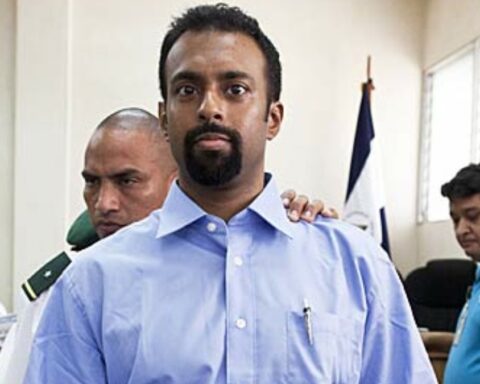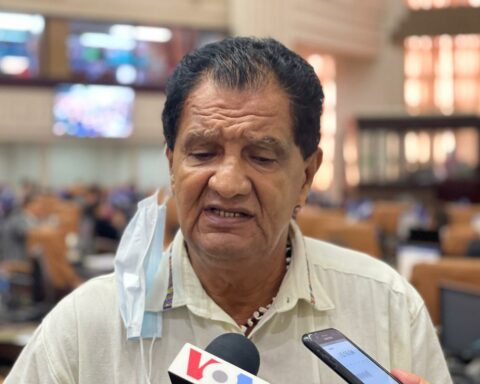Nicaragua repeated as one of the “authoritarian regimes” of the American continent, within an annual and world classification of democracy prepared by The Economist Intelligence Unit (EIU). It is only surpassed by Venezuela and Cuba, according to the data, but suffered a drop of twenty places in the world ranking “after a fictitious presidential election held last November.”
The classification is called the Democratic Quality Index. Nicaragua ranks 22nd out of 24 countries on the American continent and 140th in the world, where Afghanistan occupies the last position (167) on the EIU list, which belongs to the prestigious British magazine The Economist.
“President Daniel Ortega won the election, but he had jailed dozens of political opponents, stripped the country’s main opposition party, and packed the electoral commission with loyalists. This further cemented the status of the “authoritarian” regime, the report cites.
Nicaragua reached the classification of “authoritarian regime” in 2018, when it suffered a major setback by dropping 17 places in the world ranking. This as a consequence of the brutal government repression of the civic protests of April 2018, which left more than 355 murdered, according to the Inter-American Commission on Human Rights (IACHR). Since then, he has remained sunk without democracy and last November, after an election without democratic guarantees, Ortega assumed a fourth consecutive term, considered by 40 countries of the international community as illegitimate.
Five evaluation criteria
The publication assessed democratic quality around the world based on five criteria: electoral processes and pluralism; government operation; political participation; political culture; and civil liberties. Based on these parameters, it gives a rating to each country in an index that in 2021 was led by Norway.
Conversely, Nicaragua obtained an average score —out of a maximum of 10— of 3, that is, 0.55 below the 3.55 it obtained in 2020.
In electoral processes and pluralism it obtained zero, in functioning of the Government three points were assigned, in political participation another three points, in political culture four points and in civil liberties three.
Finally, this index classifies countries into four categories: full democracies, with defects, hybrids, and authoritarian regimes.
At the head of the index was Norway with 9.37 points. In the category of full democracies, there are also countries such as New Zealand, Finland, Sweden, Iceland, Denmark, Taiwan, Australia, Switzerland, the Netherlands, Canada, Uruguay, Luxembourg or Germany.
To be considered a full democracy, countries need a score that exceeds 8 points, but global democracy has continued its decline in 2021, according to the publication. The analysis has indicated that more than a third of the world’s population lives under authoritarian regimes, while only 6.4% enjoy full democracy.
Latin America moves towards authoritarianism
At the regional level, the EIU highlights that democracy in Latin America suffered “a major setback in 2021”. So the average regional score fell from 6.09 in 2020 to 5.83 in 2021, representing “the largest year-on-year decline experienced by any region since the inception of the Democracy Index in 2006,” adds The Economist.
The cause of this deterioration of regional democracy was the degradation suffered by five countries that went from having a complete democracy to a defective one, while countries like Ecuador, Mexico and Paraguay lost their status as “defective democracies” and are now designated as “defective regimes”. hybrids”. Haiti went from being a hybrid to an authoritarian regime.
The region also set an “unenviable” record for the largest number of countries recording double-digit declines in 2021, with seven countries falling in the ranking between ten and 20 places, and several others dropping eight places.
For the second year in a row, the pandemic was the main source of problems for freedom, because through lockdowns and travel restrictions, civil liberties were suspended in both developed democracies and authoritarian regimes.
In addition, the weak political culture of the region has given rise to “the growth of illiberal populists: like Jair Bolsonaro, in Brazil; Andrés Manuel López Obrador, in Mexico; and Nayib Bukele, in El Salvador. This trend also fostered authoritarian regimes in Nicaragua and Venezuela”, they underline.
According to the index “around 80% of the population of the region (Latin America) lives under democratic regimes, but only 1.3% of the population of the region lives in a full democracy (in Costa Rica and Uruguay)”.








